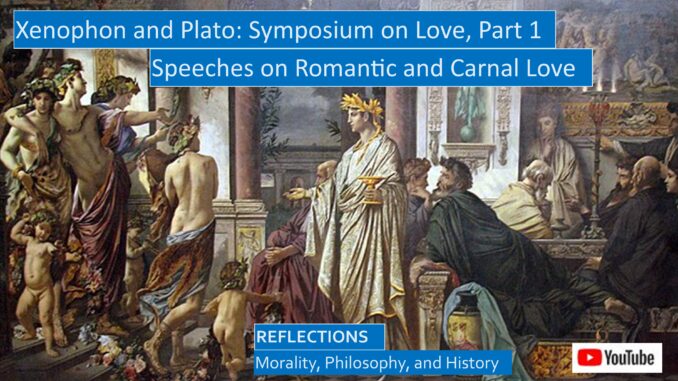
One of Plato’s most notable Socratic Dialogues was his Symposium, or dinner party, though the Greek is better translated as drinking party. In the Platonic Symposium, the aristocratic dinner guests are still hung over from the Symposium from the prior night, so they decide on a quiet evening without the flute girls and entertainment, a Symposium that is more of a wine sipping party where the guests offer light-hearted speeches on the aspects of love, concluding with a deeply philosophical speech by Socrates on the Divine Love that subsumes and transcends romantic or carnal love.
This YouTube video on Symposium and Romantic Love:
https://youtu.be/OIe5pn2S1Ls
Youtube script with more book links:
https://www.slideshare.net/BruceStrom1/xenophon-and-plato-socratic-dialogue-symposium-romantic-and-carnal-love-part-1
Second Blog and video on Symposium and Divine Love:
https://seekingvirtueandwisdom.com/xenophon-and-plato-socratic-dialogue-symposium-divine-and-noble-love-part-2/
https://youtu.be/z6X3pwVTdrc
These Socratic dialogues were written shortly after the overthrow of the Thirty Tyrants, and shortly after the subsequent trial and execution of Socrates. The Thirty Tyrants who were put in office by Sparta after she won the Peloponnesian Wars, were overthrown, and after so we will also explore these connections.
We will first reflect on Xenophon’s Symposium. Most scholars agree that Xenophon read Plato’s Symposium, and although he doesn’t dispute Plato’s account, he wants to add his own perspective. Xenophon’s Symposium also has Socrates as the star guest who delivers a concluding speech, his Symposium differs in that the flute girls and entertainers make his dinner party more entertaining. Apart from Socrates, each Symposiums has its own guest list, and the guests in Xenophon’s Symposium tell us “what beneficial thing they are most expert in.”
When reading these dialogues, keep in mind that the speeches by the guests preceding Socrates are either simplistic or flawed, or both, and they often describe sensual love, which can be partially noble, which are contrasted to the purely noble and Divine Love described by Socrates.
These are two very different dinner parties, one featuring the Platonic Socrates, the other featuring Xenophon’s more Stoic Socrates, although you could argue that, in some ways, the Platonic Symposium is more Stoic than many scholars realize. Although by the time of the Emperor Marcus Aurelius the Platonists and Stoics were differing schools of philosophy in Athens, we prefer to argue that moral philosophy was core to both Xenophon’s Socrates and Plato’s Socrates.
The guests include Socrates, and Antisthenes, the founder of the Cynic School of Philosophy, one of the Thirty Tyrants, plus several guests whom the Thirty Tyrants executed.
These are the guests and speakers of Xenophon’s Symposium:
- Socrates is the main character who drives the conversation.
- Callias is an exceptionally rich Athenian who is the host of the party.
- Antisthenes is a student of Socrates who founded the Cynic school of philosophy. Many Cynic teachings are adopted in the next generations by Zeno, the founder of Greek stoicism.
- Charmides was one of the Thirty Tyrants who executed Niceratos and Autolycus. Charmides was killed with Critias in the battle between the democratic Thrasybulus and the Thirty Tyrants.
- Niceratus is son of the most prominent general in Athens, who is later killed by the Thirty Tyrants.
- Autolycus, son of Lycon, is the attractive young winner of the pankration athletic contest, who was later killed by the Thirty Tyrants.
- Lycon, proud father of Autolycus. Scholars debate whether he was one of Socrates’ prosecutors at his trial and execution or was another Lycon.
- Critobulus and Hermogenes were students of Socrates.[1]
The host of the Symposium, Callias, has a bit of a crush on Autolycus, though this is subdued in the story, he never addresses him in the dialogue. The young teen Autolycus sat down next to his father, Lycon, and later in the dialogue, Lycon says he is most proud of his son, and his son, Autolycus, his father. Later, Autolycus would be killed by the Thirty Tyrants. One of Socrates’ prosecutors was named Lycon, scholars are not sure if this is the same Lycon.
Autolycus’ modesty was regal, “his good looks drew everyone’s attention,” “there was not a man there whose feelings were not moved at the sight of him, some became more silent.” Xenophon comments that “those who are inspired by a discreet love wear a kindlier expression, speak in a gentler tone, and behave in a manner befitting a free man.”[2]
This just sounds creepy to many modern ears. But there is no doubt that homosexuality was more accepted in the ancient world, quite often an older man would pursue a teenager, often with the permission of the boy’s father, and he would be a mentor to the youngster, and some of these relationships became life-long friendships after the younger partner matured.
Our window to the past is incomplete, there were no public opinion polls of the ancient world. There are three things we can be certain of. One, many modern scholars who specialize in the study of ancient sexuality are themselves homosexual and thus seek to convince us that homosexuality was condoned by nearly everyone in the ancient world. Second, we know that in the ancient world, just as today, attitudes towards homosexuality varied from place to place, and from person to person, and from time to time. Third, as the centuries progressed, the ancients became more and more uncomfortable with pederasty, or men-boy relationships, as they are so prone to abuse, and the Christian antipathy to homosexuality testifies to this progressing intolerance.
Not only do these two dialogues on the Symposium try to discover the truly divine Love, but they also seek to discourage predatory homosexual relationships, and Socrates is above the venial and vulgar types of love such as this, never consummating any homosexual relationship. Indeed, in this part of this dialogue, Socrates said that “no man, surely, daubs himself with scent for the benefit of another man.”[3]
We read moral philosophy to learn how to live a godly life, and since these dialogues were part of the historical movement that eventually rejected pederasty, we can easily apply these observations to romantic relationships between men and women, seeking the lasting platonic love that will outlast the fading sensual love.
Coming back to Xenophon’s Symposium, hosts of racier Greek drinking parties would provide flute-girls and courtesans for their drunken guests, but our host, Callias, likely knowing that Socrates would not approve of this, instead invited a Syracusan who provided tamer entertainment, with flute girls and acrobats.
During dinner, Socrates is asked why he doesn’t train his difficult wife, Xanthippe, to be less troublesome. Socrates responds in a manner a Stoic would appreciate, “When people want to become good horsemen avoid the docile horses, because if they can manage high-spirited horses, they can easily manage any horse.” Therefore, “if I can put up with my difficult wife, I shall find it easy to get on with anybody else.”[4]
We hope that his wife Xanthippe never discovered that her husband Socrates compared her to a spirited horse, which perhaps suggests that there were limits to the wisdom of Socrates.
After dinner, the speeches begin with the host sharing his “most valuable area of expertise.” Callias starts with “let me tell you what I am most proud of: I believe that I can make people better.”
Antisthenes, the Cynic philosopher, asks him, “By teaching them some manual skill, or true goodness?”
Callias: “True goodness, if that means morality.”
Next it is the turn of Antisthenes, he declares that he is most proud of his wealth, although he the admits that he doesn’t even own an obol, he is penniless, as Cynics live as paupers, sleeping in the city square.
In one of our earlier videos and blog we reflected on the philosophy of Antisthenes, recognized as the founder of the Cynic school of philosophy, the most famous Cynic is Diogenes of Sinope, who lived in a pot in the city square. The Cynics accentuated the asceticism of Socrates’ philosophy.
These are some of Antisthenes’ teachings from the work by Diogenes of Laertius:
“Pay attention to your enemies, for they are the first to notice your faults.”
“When asked what advantage he enjoyed from philosophy, he said, ‘To be able to live in company with oneself.’ “
When asked what is man’s greatest blessing, he replied, “To die happy.”
Virtue is all that is needed for happiness, “since it needs nothing but the strength of Socrates. Virtue is a matter of deeds, and deed need no abundance of words or learning.” [5]
Later, Zeno and the Greek Stoics adopted much of the Cynic attitudes and teachings, though they preferred to live in simple huts rather than in large pots.
Then Charmides then playfully responds that he is most proud of his poverty. Later in the dialogue we learn he lost his considerable wealth during the depredations of the war. Charmides was one of the Thirty Tyrants who executed his fellow guests, Niceratos and Autolycus, and died in the battle with those who opposed the tyranny.
Niceratus, a prominent general, says he is most proud that he can recite the whole of the Iliad and Odyssey, a valuable skill as many ancient Greek works quote Homer. That is why we reflected on the histories of the Trojan Wars, then the Greco-Persian wars where the Greeks defeated the mighty invading Persian Empire, and then the long and complicated history of the Peloponnesian Wars, as this history will enable you to better understand the Platonic dialogues.
https://youtu.be/DpmuhZJUJn0 and https://youtu.be/ynIx-AVI2f8 and https://youtu.be/bGHHD7XTvr0 and https://youtu.be/7lI2ZQ50wRc and https://youtu.be/bUW4ZT9zpt8
When Critobulus says he is most proud of his good looks, Socrates asks him, “Can you claim that you can make us better by your good looks?”
He answers, having successfully baited Socrates, “If I can’t, I obviously shan’t look very good!”
For the next round, Socrates then suggests that each guest “demonstrates the value of what he claims to possess.” When the host suggests that he “’makes people morally better’, Socrates asks him how. Callias replies, ‘by giving them money.’
Antisthenes asks him critically, ‘Do people keep morality in their minds or in their pockets?’
Callias explains how this improves people, ‘When they can buy what they need, they don’t want to risk committing crimes.’”
This is true in both the modern and ancient worlds, those who are trapped in poverty are tempted to steal to survive, but likely this also reflects how some aristocrats sought to purchase some goodwill from their followers, or from poorer citizens to keep them from revolting against the wealthier classes.
Socrates then asks Antisthenes why “he prides himself on his wealth, although he has such limited means.”
Antisthenes responds, “Many wealthy consider themselves so poor that they submit to any hardship to increase their possessions,” “and some despots are so hungry for wealth that they commit far more dreadful crimes than the desperately poor. It is need, no doubt, that drives the poor to steal, break into houses, and kidnap; but there are some despots who destroy whole houses, commit mass murders, and often sell whole populations away into slavery for the sake of money.”
This diatribe would hit home since the wanton executions by the Thirty Tyrants installed in Athens by the victorious Spartan leader Lysander were recent memories, and the many victims included both rich and poor, some were executed for their political opposition, many of the rich were executed solely for their property.
Antisthenes observes further, “Those who are more concerned with thrift than extravagance, are likely to be far more moral in their conduct, because those who are most content with what they have are least attracted by other people’s property.” Then he says that he has that “supreme luxury, spare time; so, I can see what is worth seeing and hear what is worth hearing” when “I spend my days at leisure with Socrates.”
This dinner party of Xenophon has been leading up to the concluding speech by Socrates, which is also a reflection by Xenophon on Socrates’ speech that he delivers in the Symposium by Plato, where Socrates and all of the guests speak about Love, so we will first examine Plato’s Symposium now.
PLATO’S SYMPOSIUM
In the Plato’s Symposium, there are no flute girls, no entertainers, and all the speeches are about love.
These are the main dinner guests and speakers of Plato’s Symposium:
- Socrates, who is the only character in both Xenophon’s and Plato’s Symposium.
- Agathon was a tragic poet and host of the banquet.
- Aristophanes is comic playwright whose play, The Clouds, ruined the reputation of Socrates, and was a factor that led to his unjust execution.
- Phaedrus was an aristocrat who was a student of Socrates, also appearing in the Phaedrus and other Platonic dialogues.
- Eryximachus was a physician. Phaedrus and Eryximachus may have been indicted for profaning the Eleusinian mysteries, along with Alcibiades, before the Sicilian Expedition.
- Pausanias was a legal expert, who is briefly mentioned in other Platonic dialogues.
- Alcibiades, student and lover of Socrates, crashes the party. Many Athenians blamed him for Athens losing the war.[6]
Phaedrus, the student of Socrates who has his own dialogue, begins the speeches by “affirming that Love is a mighty god, and wonderful among gods and men,” “the eldest of the gods. There is “not any greater blessing to a young man who is beginning life than a virtuous lover, or to the lover than a beloved youth. For the principle which ought to be the guide of men who would nobly live, that principle which neither kindred, nor honor, nor wealth, nor any other motive, is able to implant so well as love. Of what am I speaking? The sense of honor and dishonor, without which neither states nor individuals ever do any good or great work.”
Phaedrus continues, “The courage which, as Homer says, the god breathes into the soul of some heroes, Love of his own nature infuses into the lover. Love will make men dare to die for their beloved.” “As greatly as the gods honor the virtue of love, still the return of love on the part of the beloved to the lover is more admired and valued and rewarded by them, for the lover is more divine; because he is inspired by god.” In the Iliad, the goddess mother of Achilles told him he was doomed to die in battle but would live to old age if he returned home, but after his friend Patroclus was killed by Hector in battle, “Achilles gave his life to revenge his friend, and dared to die, not only in his defense, but after he was dead.”
Phaedrus concludes, This is why I “affirm that Love is the giver of virtue in life, and happiness after death.”[7] Two of the speakers, Phaedrus and Eryximachus, may have been indicted, as was Alcibiades, for profaning the Eleusinian mysteries before the Sicilian Expedition.
Pausanias, the next speaker, says those who listen to Phaedrus may conclude that there is only one kind of love, whereas there are many kinds of loves, which like many other human actions like drinking, singing, and talking among friends can either be good or bad, “when well done they are good, and when wrongly done they are evil. Not every love, but only love with a noble purpose, is noble and worthy of praise.” The carnal, meaner love of the common Aphrodite, goddess of love, “is only concerned with bodily pleasures, “the love which desires only to gain an end, but never seeks a noble end,” is not concerned whether it is good or bad. But the noble love of the heavenly Aphrodite is not wanton in her love.
Here Pausanius expresses the nobility of platonic love, where those inspired by the heavenly Aphrodite “love not boys, but intelligent beings whose reason is beginning to be developed, much about the time their beards begin to grow.”
Pausanias says we should not deceive those whom we say we love, but be faithful to them, and he explicitly states that “the love of young boys should be forbidden by law, because their future is uncertain,” “and the coarser sort of lovers ought to be restrained by force, as we restrain them from fixing their affections on women of free birth. Such behavior brings a reproach upon love.”
Pausanias concludes, “Evil is the vulgar lover who loves the body rather than the soul, he is unstable and loves the unstable, and when the bloom of youth he has been desiring withers, he takes wing and flies away, in spite of all his words and promises; whereas the love of the noble disposition is life-long and permanent.”[8]
Then the physician Eryximachus speaks how love is the best medicine of all, how the “best physician can separate fair love from foul or convert one into the other.” “Wanton love, getting the upper hand,” “is very destructive and injurious.” “Love which is concerned with the good, which is perfected in company with temperance and justice, whether among gods or men, has the greatest power, and is the source of all our happiness and harmony, and makes us friends with the gods who are above us, and with one another.”[9]
The comic Aristophanes has the most hilarious description of love. This is the same Aristophanes who earlier had written a biting criticism of Socrates which deeply damaged the reputation of Socrates. During his trial, Socrates felt compelled to defend himself against the lies about Socrates that Aristophanes included in the play.
Arguably, these lies and slanders in the play, The Clouds, was a factor in the jury finding Socrates guilty of impiety and corrupting the youth of Athens and voting to execute him.
These slanders by Aristophanes included:
Slander: Socrates was a self-serving sophist who taught for money
Truth: Socrates taught for free. We can safely speculate that this encouraged Plato to endlessly prove in his dialogues that Socrates was not a Sophist, and that the so-called Sophist philosophy was itself corrupt.
Slander: Socrates instructed his students how to mislead and manipulate their peers, and how to avoid their debts.
Truth: Socrates was a moral philosopher who instructed his students how to live a godly life, and how to participate in the democracy as a good citizen.
Slander: Socrates only cared about teaching useless knowledge about how far fleas jumped, out of which end gnats buzzed, and gazed at and wondered about the nature of the moon.
Truth: Socrates, in his later years, only cared about teaching moral philosophy.
In his speech at the Symposium, Aristophanes begins, “Mankind, judging by their neglect of Love, has never understood the power of Love.” “Of all the gods he is the best friend of men, the helper and healer of the ills that prevent the happiness of the race.” He then describes the just-so story of how the gods altered the primeval man to modern man. To account for both heterosexual and homosexual love, he said there was originally three sexes, all man, all woman, and the union of both. Aristophanes explains that “the primeval man was round, his back and sides forming a circle; he had four hands and four feet, one head with two faces, looking opposite ways, set on a round neck and precisely alike.” Comically, he could walk upright, backwards or forwards, or he could roll at a great pace, turning on his four hands and four feet like tumblers rolling with their legs in the air.”
But then this primeval man “attacked the gods,” “daring to scale heaven.” So, Zeus decided to humble this primeval man, and cut each man in two, asking Apollo to heal each half.
What are the origins of love in this oddball creation story? “The two parts of man, each desiring his other half, come together, and throwing their arms about one another, entwined in mutual embrace, longing to grow into one.” So now “man is always looking for his other half.” “When one of them meets his other half, the actual half of himself,” “the pair are lost in an amazement of love and friendship and intimacy, and will not be out of the other’s sight, even for a moment.”[10]
In Xenophon’s Symposium, the host spoke first, but in Plato’s Symposium, the host Agathon speaks last before Socrates on the topic of love. Agathon says the prior speakers, “instead of praising the god Love, or unfolding his nature, appear to have congratulated mankind on the benefits of Love.” He says the god of Love is “fairest and youngest of the gods, fleeing old age,” “ever youthful,” “young and tender.”
The god of Love walks “in the hearts and souls of both gods and men,” “but not in every soul, where there is hardness he departs, where there is softness, he dwells.” This is a stoic god, “his greatest glory is he can neither do wrong, nor suffer wrong to or from any god or man.” “Not only is Love just, but he is exceedingly temperate, for Temperance is the acknowledged ruler of pleasures and desires, and no pleasure ever masters Love; he is their master, and they are his servants; and if he conquers them, he must be temperate indeed.”
Agathon continues, “Love empties men of disdain and fills them with affection,” “Love encourages courtesy and discourages rudeness, is always kind, never unkind.” “Love is the parent of delicacy, luxury, desire, fondness, softness, grace; encourages the good, discourages the evil: in every word, work, wish, and fear; is savior, pilot, comrade, and helper. Let every man follow in Love’s footsteps, sweetly singing in his honor and joining in that sweet strain with which love charms the souls of gods and men.”[11]
SECOND BLOG AND VIDEO ON XENOPHON’S AND PLATO’S SYMPOSIUM
Socrates then quizzes Agathon as only Socrates can on the nature of love, and then in his speech, Socrates tells us of the lessons on love that were taught to him by “Diotima of Mantineia, a woman wise in this and many other kinds of knowledge,” which is a Socratic dialogue set within a Socratic dialogue, a dialogue on Divine Love. Just as Socrates finishes his speech, our drunken and rowdy friend Alcibiades crashes his party and is invited to give his own speech on Love, which is really a speech comparing his carnal love for Socrates, to Socrates divine love for Alcibiades, and all his students, and indeed for all of Athens.
We finish with a reflection of the final speech of Socrates in Xenophon’s Symposium, which is his summary of Socrates final speech in Plato’s Symposium.
DISCUSSING THE SOURCES
We enjoyed listening to the lecture by Professor Michael Sugrue on the Symposium, he is enthusiastically Platonic, and by listening to his lectures you can understand how the Neoplatonists were able to elevate Platonism nearly to the status of a religion. He and I have different approaches, I prefer to draw out the moral lessons from all positions, so I am concentrating more on the content. But Professor Sugrue also argues how Plato, in this dialogue, seeks to argue that Plato is criticizing the shallowness of the Sophists, showing how the sophist Gorgias has influenced some speakers, and he draws out the symbolism in how the speakers give their speeches.[12]
Since many of our videos on ancient Greece use many of the same sources, we have a video on Book Reviews of Ancient Greek History and Philosophy.
[1] https://en.wikipedia.org/wiki/Symposium_(Xenophon); and Xenophon, Conversations of Socrates, Introduction to the Dinner Party, translators Hugh Tredennick and Robin Waterfield (New York: Penguin Classics, 1990, 1970, originally 400’s BC), pp. 219-226; and death of Charmides: Xenophon, Hellenica, A History of My Times, translated by Rex Warner (New York: Penguin Classics, 1979, 1966, originally after 362 BC), Book 2.4.19, p. 129.
[2] Xenophon, Conversations of Socrates, The Dinner Party, Book 1, p. 228.
[3] Xenophon, Conversations of Socrates, The Dinner Party, Book 2, pp. 230.
[4] Xenophon, Conversations of Socrates, The Dinner Party, Book 2, pp. 230-232.
[5] Diogenes, Lives of Eminent Philosophers, translated by Pamela Mensch, (New York: Oxford University Press, 2018), Book on the Cynic Philosophers, Book 6: 1-12, pp. 260-264.
[6] https://en.wikipedia.org/wiki/Symposium_(Plato)
[7] Plato, Essential Dialogues of Plato, , translator Benjamin Jowett and Pedro De Blas (New York: Barnes and Noble Classics, 2005, 1871, originally 400+ BC), Symposium 178a-180b, pp. 74-76.
[8] Plato, Essential Dialogues of Plato, Symposium 180c-183g, pp. 76-79.
[9] Plato, Essential Dialogues of Plato, Symposium 186d-188d, pp. 81-83.
[10] Plato, Essential Dialogues of Plato, Symposium 189c-192c, pp. 83-86.
[11] Plato, Essential Dialogues of Plato, Symposium 195a-197e, pp. 88-90.
[12] Michael Sugrue, Plato, Socrates, and the Dialogues, Teaching Company, 1998, 1996, Lecture 14, Symposium, The Pride of Love

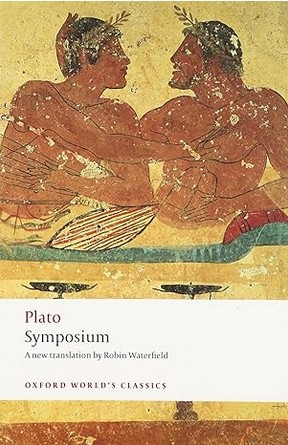
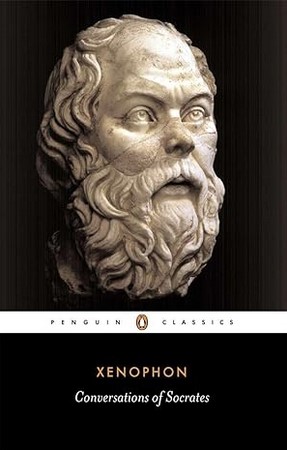
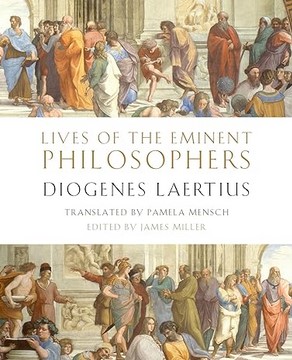
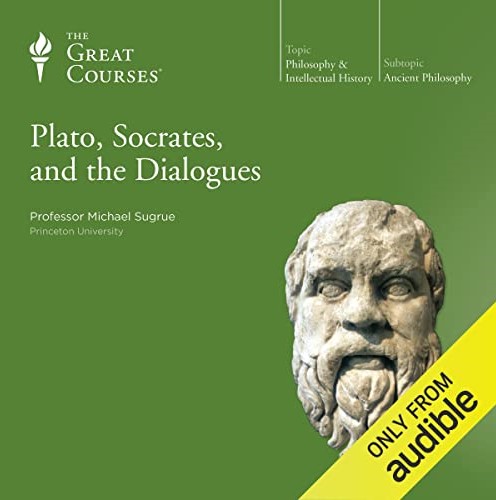
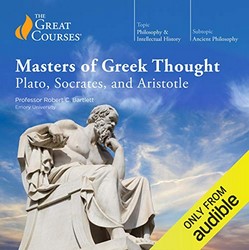
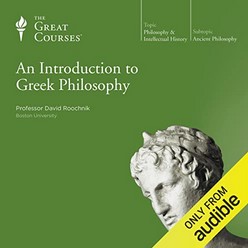

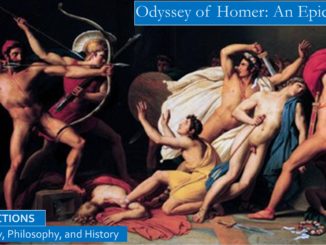
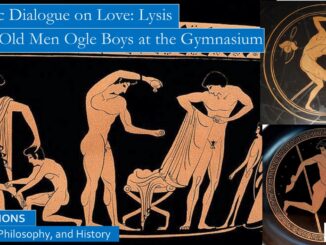
Be the first to comment